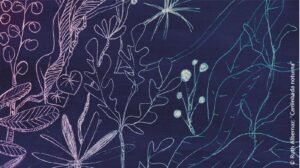Ibero-Amerikanisches Institut
Inclusion and diversity have marked the demands of social movements in the 21st century. With the concept intersectionality, inspired by feminist movements in the US, the academic field aims to understand how various interdependent conditions of oppression and inequality–class, gender, religion, ethnicity, skin colour, citizenship, migration, geography, and language–are reflected in exclusion, but also in the articulation of differentiated demands and struggles. Much less visible have been the voices of academics and activists from Latin America, who have both made perceivable and conceptualized social and political exclusion from the peripheries.
This series of public lectures “Diversity/Medialities” organized by the Ibero-Amerikanisches Institut and Mecila, focuses on these voices from the margins, their long-term conceptual and epistemological frameworks, and their forms and media of circulation and entanglements. With the first focus on feminist and LGTBIQ movements and ideas we invite experts and activists analysing South-North interconnections in the struggles for the rights of women and LGTBIQ groups in Latin America.

Image: Ruth Albernaz
Programa
Terça-feira, 24.1.2023, 18.00 h, Sala Simón Bolívar
Ibero-Amerikanisches Institut, Potsdamer Straße 37, 10785 Berlin
O pensamento das margens e a busca da uma ancestralidade indígena na literatura brasileira contemporânea
Nas últimas décadas o Brasil tem vivido uma mudança de paradigma que se reflete na cultura e nas artes, e que tem como principal característica o surgimento de novas vozes (indígenas, de mulheres, afro-brasileiras, entre outras). Na conferência, Carola Saavedra e Peter W. Schulze (Universität zu Köln) abordam essa mudança que visa não só novos temas, mas também novas linguagens e formas de narrar. Neste sentido, o romance O manto da noite (2022), de Carola Saavedra apresenta além da temática de recuperação da identidade indígena, o trabalho de busca de uma linguagem que abrange conceitos como literatura expandida e permaescrita, e que a autora define também como Realismo Onírico. A leitura de trechos do romance pela própria autora servirá como ponto de partida para pensar possíveis caminhos para a literatura como forma de reescrever o passado colonial e imaginar novos futuros para o continente.
Inscrições aqui.